Related Research Articles
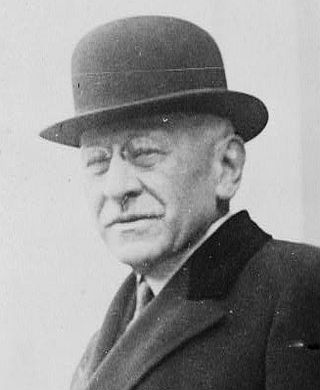
Julius Rosenwald was an American businessman and philanthropist. He is best known as a part-owner and leader of Sears, Roebuck and Company, and for establishing the Rosenwald Fund, which donated millions in matching funds to promote vocational or technical education. In 1919 he was appointed to the Chicago Commission on Race Relations. He was also the principal founder and backer for the Museum of Science and Industry in Chicago, to which he gave more than $5 million and served as president from 1927 to 1932.
Matching funds are funds that are set to be paid in proportion to funds available from other sources. Matching fund payments usually arise in situations of charity or public good. The terms cost sharing, in-kind, and matching can be used interchangeably but refer to different types of donations.
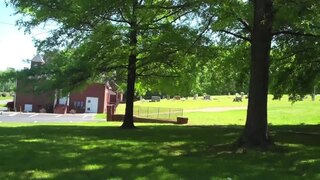
The Rosenwald School project built more than 5,000 schools, shops, and teacher homes in the United States primarily for the education of African-American children in the South during the early 20th century. The project was the product of the partnership of Julius Rosenwald, a Jewish-American clothier who became part-owner and president of Sears, Roebuck and Company and the African-American leader, educator, and philanthropist Booker T. Washington, who was president of the Tuskegee Institute.
The Rosenwald Fund was established in 1917 by Julius Rosenwald and his family for "the well-being of mankind." Rosenwald became part-owner of Sears, Roebuck and Company in 1895, serving as its president from 1908 to 1922, and chairman of its board of directors until his death in 1932.
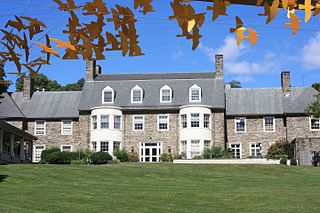
Abington Art Center is an art center built in 1939, and located in Abington Township, a northern suburb of Philadelphia, Pennsylvania. The center resides within Alverthorpe Manor and the surrounding 27-acre grounds that were formerly the residence of Lessing J. Rosenwald and his family. The art center features a studio school, innovation center, exhibition galleries and a sculpture park. The building itself features a vintage elevator from the 1930s.

Galesville is an unincorporated town and census-designated place (CDP) in Anne Arundel County, Maryland, United States. As of the 2010 census, it had a population of 685.
Samuel Walker Houston was an American pioneer in the field of education.

Cairo Rosenwald School is a former school for African-American children located in the unincorporated community of Cairo, Sumner County, Tennessee. It was one of seven Rosenwald schools built in the county.

Durham's Chapel School, also known as Durham's Chapel Rosenwald School, is a former school for African-American children located in Gallatin, Tennessee, that is listed on the National Register of Historic Places.

The Hope Rosenwald School, also known as Hope School, is a former school at 1971 Hope Station Road near Pomaria, South Carolina. As a Rosenwald School, it served rural African-American children in the early 20th century.
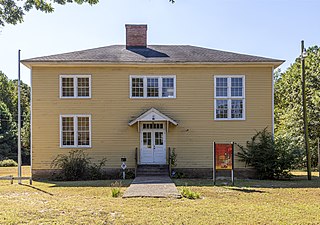
San Domingo School, also known as Sharptown Colored School and Prince Hall Masons Unity Lodge No. 73, is a historic Rosenwald School building located at Sharptown, Wicomico County, Maryland. It was built in 1919, and is a two-story, rectangular frame building with a hipped roof. It is one of four surviving Rosenwald schools in Wicomico County. The school had only four teachers and remained in use as a school until 1957.

Liberty Colored High School is a former high school for African-American students in Liberty, South Carolina during the period of racial segregation. It originally was called Liberty Colored Junior High School. The building is now a community center known as the Rosewood Center. It is at East Main Street and Rosewood Street in Liberty. The school was built in 1937 on the site of a Rosenwald school that had burned down.
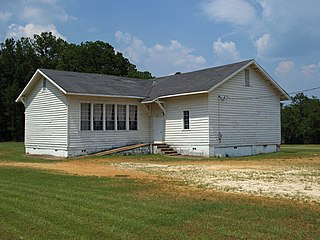
The Mount Sinai School is a historic Rosenwald School in rural Autauga County, Alabama, USA, northwest of Prattville. The one-story frame building was built in 1919 to the designs of W.A. Hazel to serve the local African American community. The money to build it was provided by the Julius Rosenwald Fund. The school was added to the Alabama Register of Landmarks and Heritage on February 2, 2001. It was subsequently listed on the National Register of Historic Places on November 29, 2001, as a part of The Rosenwald School Building Fund and Associated Buildings Multiple Property Submission.

Gale College was a private college in Galesville, Wisconsin. It was founded by George Gale, opening in 1854 and closing in 1939. Several religious denominations used the facilities as a college and later as a training school.

The J.W. Randolph School was constructed in 1928 as a public school for African-American students in Pass Christian, Mississippi. The building was vacated as a school in 2000. In 2006, the structure was designated a Mississippi Landmark.

Hopewell School, also known as the Hopewell-Rosenwald School, is a former African American school in Cedar Creek, Texas, that was listed on the National Register of Historic Places on July 15, 2015. The school was built in 1921–1922 with assistance from the Rosenwald Fund. The school opened in 1922 and closed in the late 1950s.
Rosenwald Junior College, located in Panama City, Florida, opened its doors in 1958. It was one of eleven black junior colleges founded in the late 1950s at the initiative of the Florida Legislature. Since racial integration in schools was prohibited by the Florida Constitution of 1885 then in effect, the Legislature wished to avoid the integration mandated in the unanimous Brown v. Board of Education Supreme Court decision of 1954 by demonstrating that a "separate but equal" higher education system existed in Florida for African Americans.

The Milner-Rosenwald Academy building is a former Rosenwald School, located at 1560 Highland Street, Mount Dora, Florida. It was opened in 1926, based on a design by architect Frank L. Bodine, and served students up to 8th grade. The school closed in 1962.
Okahumpka Rosenwald School is a historic Rosenwald School building in rural Okahumpka, Florida, United States. It was built in 1929 and was used as a school for African American children in the community. It is one of the two remaining Rosenwald Schools in Lake County Florida.
References
- ↑ Galesville & the Rosenwald Schools, Galesville Community Center Organization web site. Includes photos
- ↑ Krista Pfunder. Galesville receives grant for Rosenwald documentary. Bay Weekly
- ↑ Galesville Community Center Organization web site
- ↑ Galesville Community Center Organization. Field Guide to Galesville, p. 25